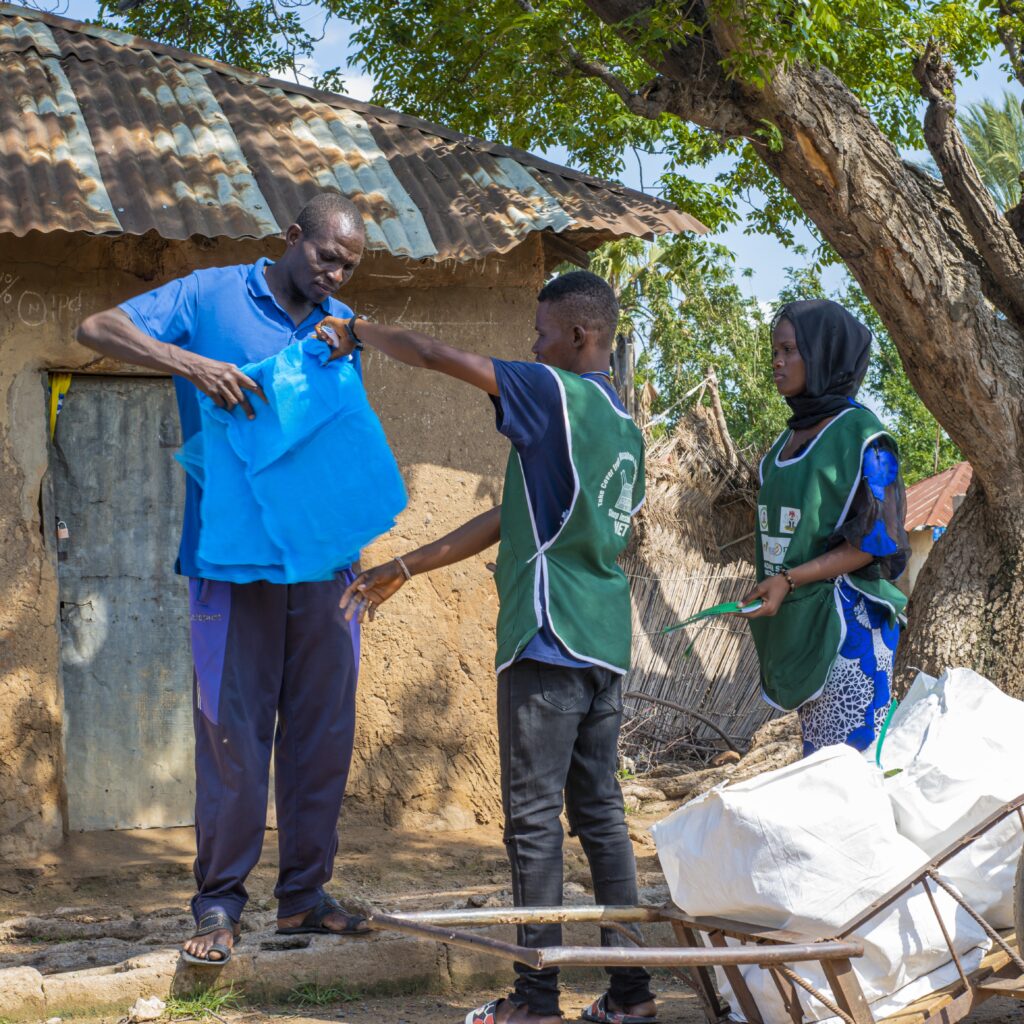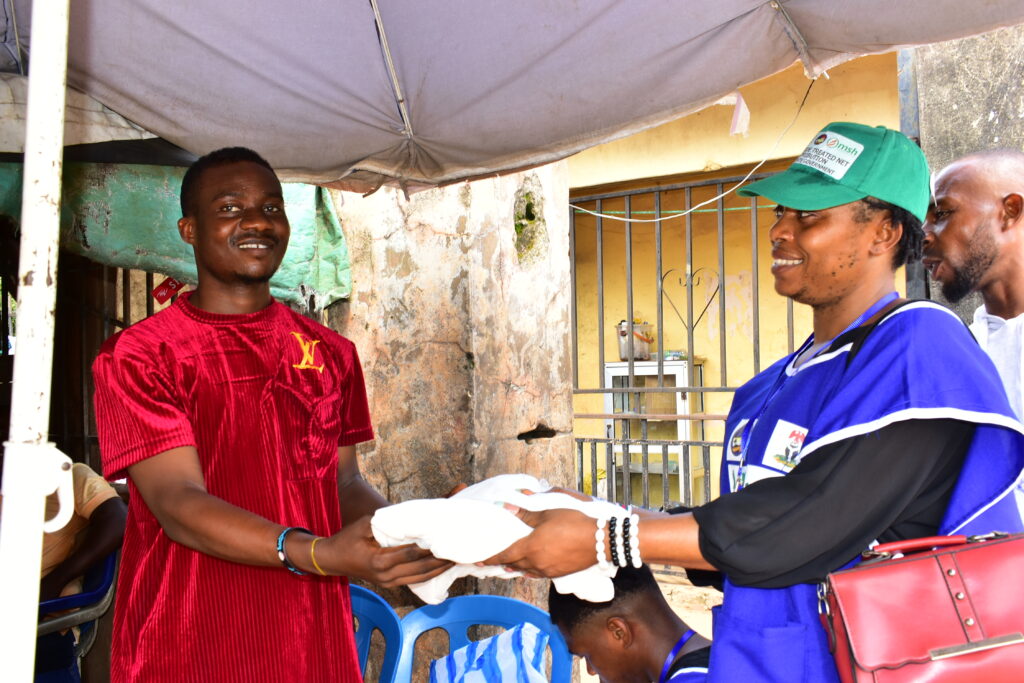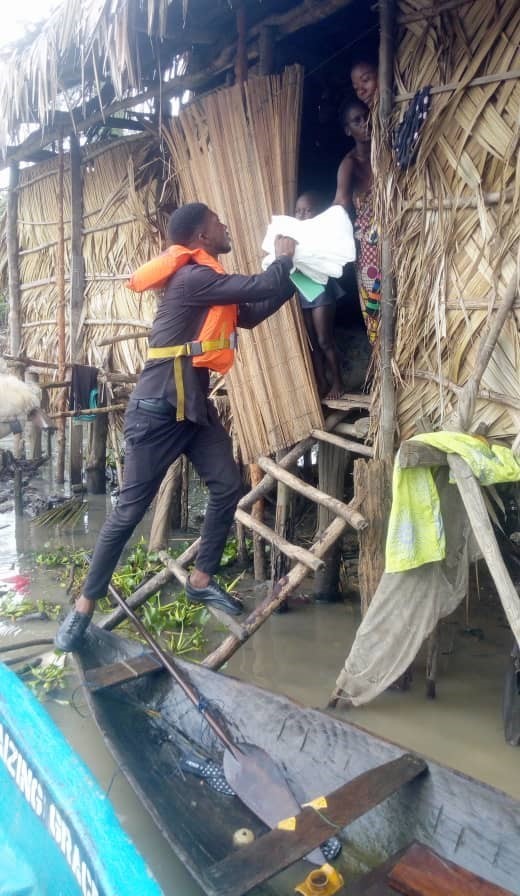Using Treated Bed Nets to Fight Malaria in Nigeria’s Changing Climate Landscape
Using Treated Bed Nets to Fight Malaria in Nigeria’s Changing Climate Landscape

In Nigeria’s Delta and Adamawa States, a campaign against mosquitoes rages on. That campaign, led by Management Sciences for Health (MSH), has reached millions of people with insecticide-treated bed nets that can protect them from the bites of the mosquito that serves as the vector responsible for malaria transmission.
The campaign deployed a massive door-to-door initiative that reached over seven million people in Delta State and over six million people in Adamawa State in June 2022 and July 2023, respectively. The mission was clear: provide insecticide-treated bed nets to families, educate them on malaria prevention, and reinforce the importance of these nets in the face of an evolving threat.

Despite earlier strides in malaria prevention, the latest report from the World Health Organization (WHO) said a steadily increasing number of people are falling ill with malaria and the culprit may be the changing climate. This revelation must serve as a prompt to malaria stakeholders to respond to the challenge by designing effective bed net campaigns.
According to WHO, temperature, humidity, and rainfall changes directly impact the behavior and survival of the female Anopheles mosquito, the carrier of malaria, and extreme weather events have led to a five-fold increase in malaria cases. The changing climate poses a substantial risk to the fight against malaria, especially in regions that are already particularly vulnerable to the disease.
“In Delta State and Adamawa State, MSH took the challenge of environment and climate change into account,” says Isaac Adejo, the Project Director of MSH Nigeria’s Global Fund Malaria Program. “We considered the unique intricacies of the states. In Delta State, for example, we have creeks and waterways that are breeding places for mosquitoes. In Adamawa, on the other hand, we are dealing with a vast landmass with lots of agricultural activities going on. We started distributing the treated bed nets in advance of peak transmission periods, so people are protected when the risk of infection is highest.”
Mr. Adejo also notes that the campaign “was tailor-made to address the specific mosquito vectors found in these areas.” For instance, the findings from an entomological study on insecticide resistance carried out by the National Malaria Elimination Program (NMEP) led to the production of a different type of bed net for distribution in Adamawa State. Mosquitos there were resistant to the standard nets treated with pyrethroid, so nets treated with the insecticide piperonyl butoxide (PBO) were produced for distribution in the state.

“Net replacement campaigns should align with climate and malaria trends,” Mr. Adejo says.
Drawing from its 15 years of experience in Nigeria, MSH trained over 14,000 individuals to navigate the unique intricacies of the states. Mobilization and Distribution Teams moved methodically from door to door, not only providing bed nets but also imparting crucial education on the threat posed by malaria-carrying mosquitoes and the effective use of the nets to counter that threat. In addition, the campaign included information on COVID-19 preventive measures, recognizing the dual threat facing the communities.
The success of the campaign aligned with Nigeria’s broader goals outlined in the National Malaria Strategic Plan (2021–2025): provide preventive measures to at least 80% of the targeted population and ensure that 80% of the population habitually implements appropriate malaria prevention and treatment measures by 2025. The campaign also embraced the WHO recommendation that one net be provided for every two people, with a maximum of four nets per household.
In light of the campaign’s initial success in Delta State, it was subsequently expanded to Adamawa State, where MSH’s mass net distribution effort reached six million individuals in 12 days. The Adamawa State Governor, Alhaji Ahmadu Umaru Fintiri, commended the efforts during a recent advocacy visit, emphasizing the need for state-specific surveillance so interventions can be tailored to the local mosquito species. This highlights a crucial aspect of the bed net campaigns: adaptability. Recognizing climate variability, campaigns must evolve to address the specific challenges faced by each region.
The Adamawa State bed net campaign highlighted the collaborative efforts of various organizations, including MSH, Catholic Relief Services, NMEP, and other partners in the battle with malaria. Success was not limited to simply reaching malaria control targets; it also extended to creating awareness and acceptance of bed nets and increasing their utilization through various channels—from town announcers to live TV and radio programs.
As the world grapples with the dual challenges of climate change and malaria, the bed net campaign in Nigeria stands as a testament to resilience and adaptability. The nexus between those challenges is a call to action, and the malaria bed net campaign is responding with determination, reaching millions and providing a shield against the evolving face of this disease.